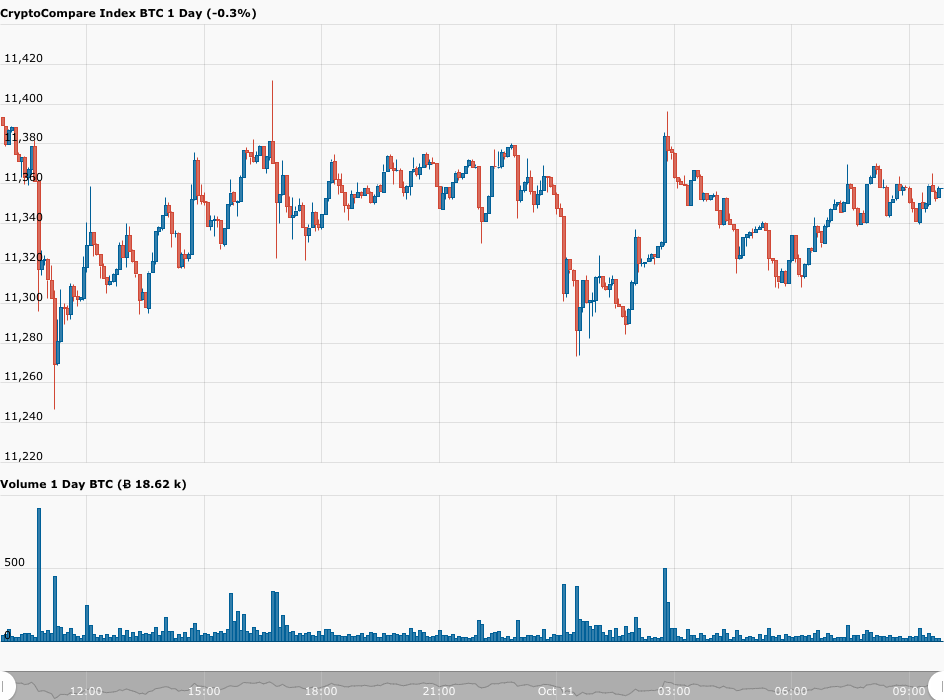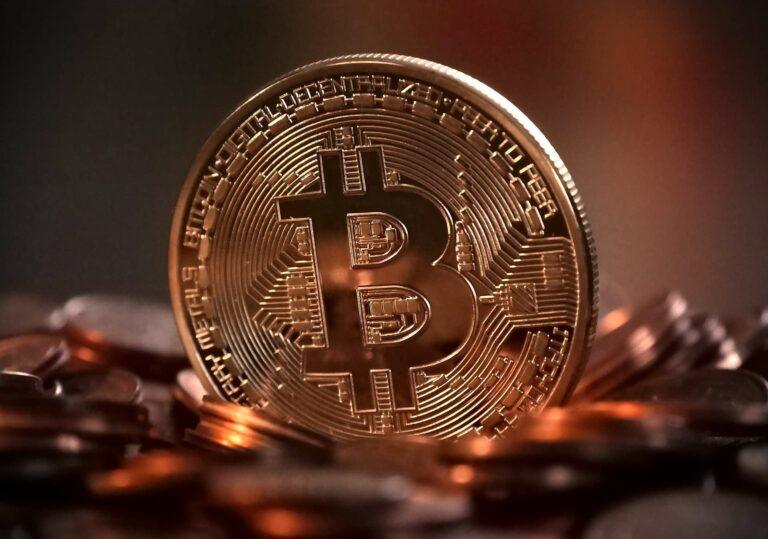On Sunday (October 11), Bitcoin is trading around $11,350, seemingly waiting for the House Democrats, the Trump Administration, and Senate Republicans to come to agreement on the next major COVID-19 fiscal stimulus.
According to data from CryptoCompare, currently (as of 09:00 UTC on October 11), Bitcoin is trading at $11,347, down 0.25% in the past 24-hour period.

According to a report by CNN, on Friday (October 9), President Trump “signed off on a roughly $1.8 trillion stimulus offer to be presented to House Speaker Nancy Pelosi, according to two people with knowledge of the decision, marking the highest topline dollar figure the administration has put on the table to this point.”
However, Pelosi continued to play hardball, knowing that Trump needs a stimulus deal (before next month’s U.S. presidential election) more than the Democrats do.
Here is Pelosi’s spokesperson, Drew Hammill, explaining why Pelosi was not happy with this latest offer from the Trump administration:
As CNN pointed out, it appears that for Pelosi “the details in the offer remain as important, if not more so, than the topline dollar figure.”
On Saturday (October 10), Pelosi wrote a letter (made publicly available as a press release) to her Democratic colleagues in the House to provide them with an update on the current state of the stimulus negotiations with the Trump Administration and to explain why she was not happy with the Administration’s latest proposal:
“On Friday, the Trump Administration returned to the table with a proposal that attempted to address some of the concerns Democrats have in the coronavirus relief negotiations. This proposal amounted to one step forward, two steps back. When the President talks about wanting a bigger relief package, his proposal appears to mean that he wants more money at his discretion to grant or withhold, rather than agreeing on language prescribing how we honor our workers, crush the virus and put money in the pockets of workers.
“At this point, we still have disagreement on many priorities, and Democrats are awaiting language from the Administration on several provisions as the negotiations on the overall funding amount continue.
“A key concern is the absence of any response on a strategic plan to crush the virus. We cannot safely reopen schools, the economy and our communities until we crush the virus with the science-based, national plan for testing, tracing, treatment and isolation, and for the equitable and ethical distribution of a safe and effective vaccine once developed.”
However, she did manage to keep hope alive that we are getting closer to seeing a deal on a comprehensive COVID-19 relief package:
“Despite these unaddressed concerns, I remain hopeful that yesterday’s developments will move us closer to an agreement on a relief package that addresses the health and economic crisis facing America’s families. As I have said before, the devil and the angels are in the details.”
Tech entrepreneur Andrew Yang, the crypto-friendly Democratic candidate who dropped out of the 2020 presidential race back on February 11, had this message for Pelosi:
According to a report by CNBC, sources told NBC News that Senate Republicans “expressed opposition to the bill under negotiation in a Saturday morning call with Treasury Secretary Steven Mnuchin and White House Chief of Staff Mark Meadows.” This is not surprising since $1.8 trillion is almost double the amount ($1 trillion) proposed by Senate Republicans on July 27.
And although Senate Majority Leader Mitch McConnell told reporters on Friday that a stimulus package is “unlikely in the next three weeks,” it is hard to imagine the scenario in which the Trump Administration and Pelosi reach agreement on the next COVID-19 relief package and McConnell refuses to go along with it since that would jeopardise Trump’s chances of getting re-elected (as well as making it more likely for Democrats to grab the 35 Senate seats that re up for election in 2020).
Featured Image by “MichaelWuensch” via Pixabay.com
The views and opinions expressed by the author are for informational purposes only and do not constitute financial, investment, or other advice.









